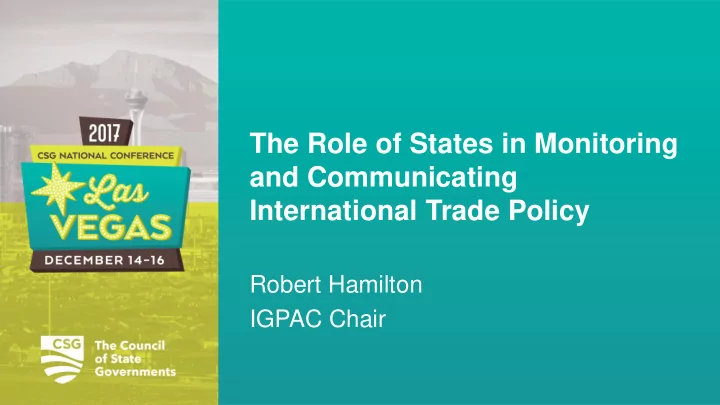

The Role of States in Monitoring and Communicating International Trade Policy Robert Hamilton IGPAC Chair
U.S. Constitution • Article I - grants Congress the power “to regulate Commerce with foreign Nations” and to “... lay and collect taxes, duties, imposts, and excises....” • Article II provides the President with exclusive authority to negotiate treaties and international agreements and exercises broad authority over the conduct of the nation’s foreign affairs. • Trade Promotion Authority (TPA): Compromise under which negotiating authority has been periodically delegated to the Executive Branch under specified conditions.
Role of States • Growing importance of international trade to national and state economies • Grown from 9% of U.S. GDP in 1960 to about 28% today • NAFTA and Uruguay Round of GATT/WTO negotiations – early 1990s
Role of States, Cntd. • State Point of Contact System • Intergovernmental Advisory Committee (IGPAC)
Trade Policy Resources U.S. Census (trade statistics) Washington Trade Daily United States Trade Representative BNA- International Trade Daily U.S. International Trade Commission Inside U.S. Trade U.S. Department of Agriculture Private Sector and NGOs World Trade Organization Think Tanks Congressional Research Service U.S. Department of Commerce USTR Advisory Committee Reports
What can State Officials do to Influence Trade Policy? • Develop expertise on trade policy • Request representation on IGPAC • Letter to USTR, USDA, Congress, President, etc. • State Congressional Delegation • Work directly with USTR, USDA and the U.S. Department of Commerce.
Recommend
More recommend